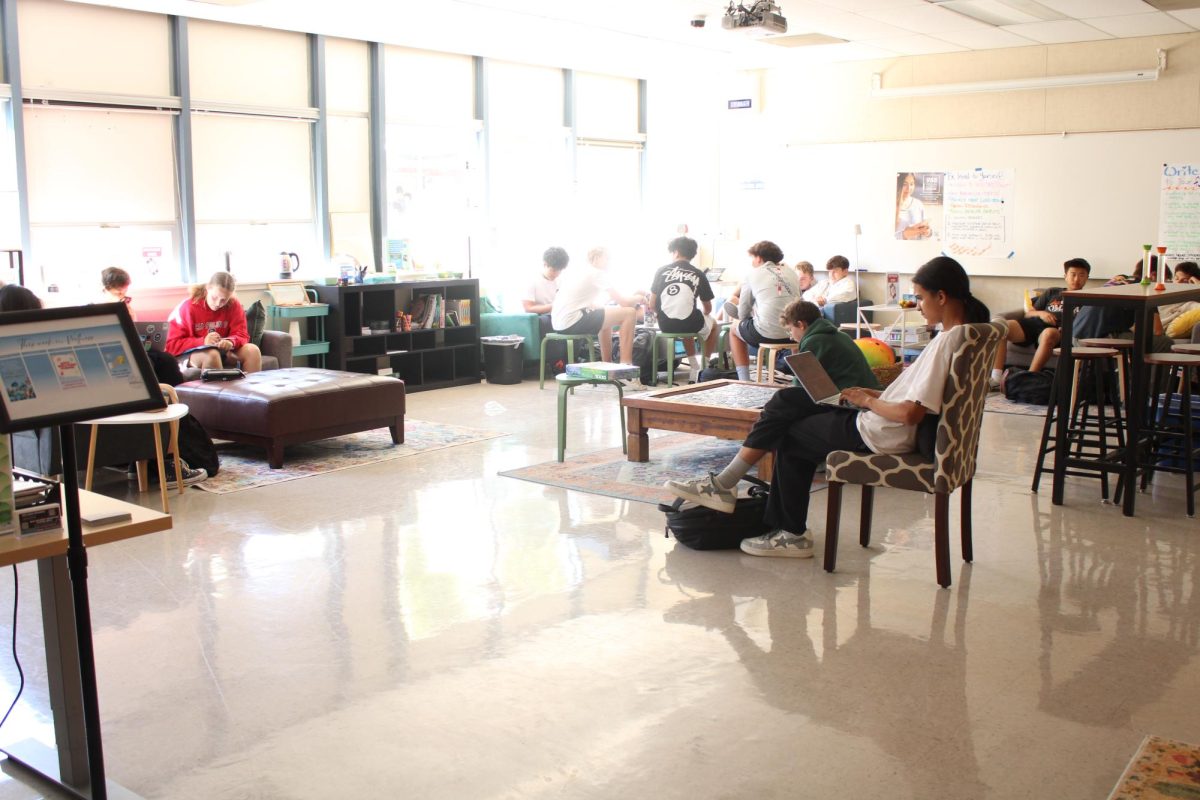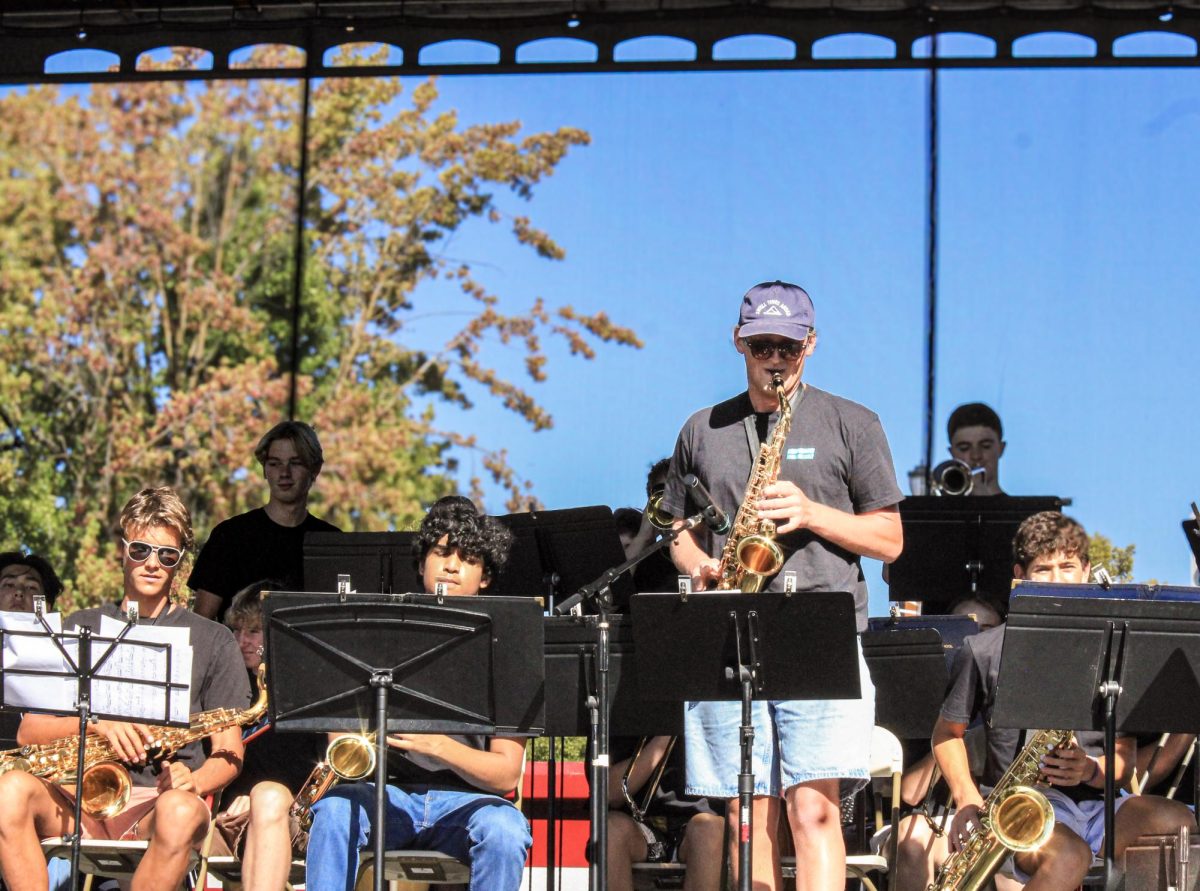On March 27, Oakland-born novelist Dashka Slater spoke in front of students and staff in the library. Former journalist at the New York Times and acclaimed author of The 57 Bus, the Campo community was honored to hear Slater’s story about how her work came to be.
Published in 2017, The 57 Bus tells the true story of an incident that occurred in Oakland in 2013. On the bus ride home from school, one teenager had held a lighter to the skirt of an agender teenager. Examining the intersectionality of sexuality, class, and race, Slater’s novel traces the repercussions of the crime as well as examines the broader implications of gender-based violence and systemic disparities in the legal system. The 57 Bus won the Stonewall Book Award and was listed as one of the best books of 2017 by the School Library Journal, the Washington Post, and the Chicago Public Library.
As a mom, Slater was particularly intrigued by the events behind The 57 Bus because it’s a story about teenagers. The leading protagonist Sasha identifies as genderqueer and is the victim in the story. That makes Richard the antagonist, a black teen from East Oakland who is subsequently charged and sentenced to prison. To explore Sasha and Richard’s complicated dynamic, Slater interviewed both of them. Synthesizing both of their perspectives, Slater was able to craft an investigative, conversational-style novel.
The 57 Bus has become a literary requirement for the freshman class. Though Slater doesn’t want her writing to “feel like a chore,” she appreciates students being encouraged to engage with new, unfamiliar material. After all, The 57 Bus is challenged in 9 U.S. states, including Texas, Florida, and other red states due to legislation that denounces the education of LGBTQ+ themes.
Slater isn’t bothered by the criticism and states’ pursuit to outlaw discussions of racism and sexuality. “The internet has perpetuated an unfiltered age of misinformation,” she said, though she wishes the stories of Sasha and Richard could be told more universally. Since its release, some have argued that Slater’s visceral telling is too vulgar and graphic. Slater sees this sentiment as a mere excuse to ban the The 57 Bus as a medium for exploring nuanced social issues.
However, for students in states like California where unique insight offered by The 57 Bus is in fact valued by politicians and educators, there are a number of lessons. Slater told her Campo audience: “Sasha and Richard’s story provides a lens for multiple truths and the opportunity for readers to be introspective and thoughtful.” Revising the narrative surrounding gender is at the forefront of Slater’s commentary, and shedding light on restorative justice has also been extremely mission-affirming for her.
Freshman Bella Alcalay is one of many students assigned The 57 Bus in English 1. “I think it’s important that we read [The 57 Bus]. I don’t know much about what happened but I want to learn more,” she said. Students’ mere exposure to social justice advocacy make Slater feel “fulfilled and grateful that [her] work is acting as an agent of change.”
For those not in the freshman class, there are numerous copies of The 57 Bus that can be checked out in the Campolindo library.




